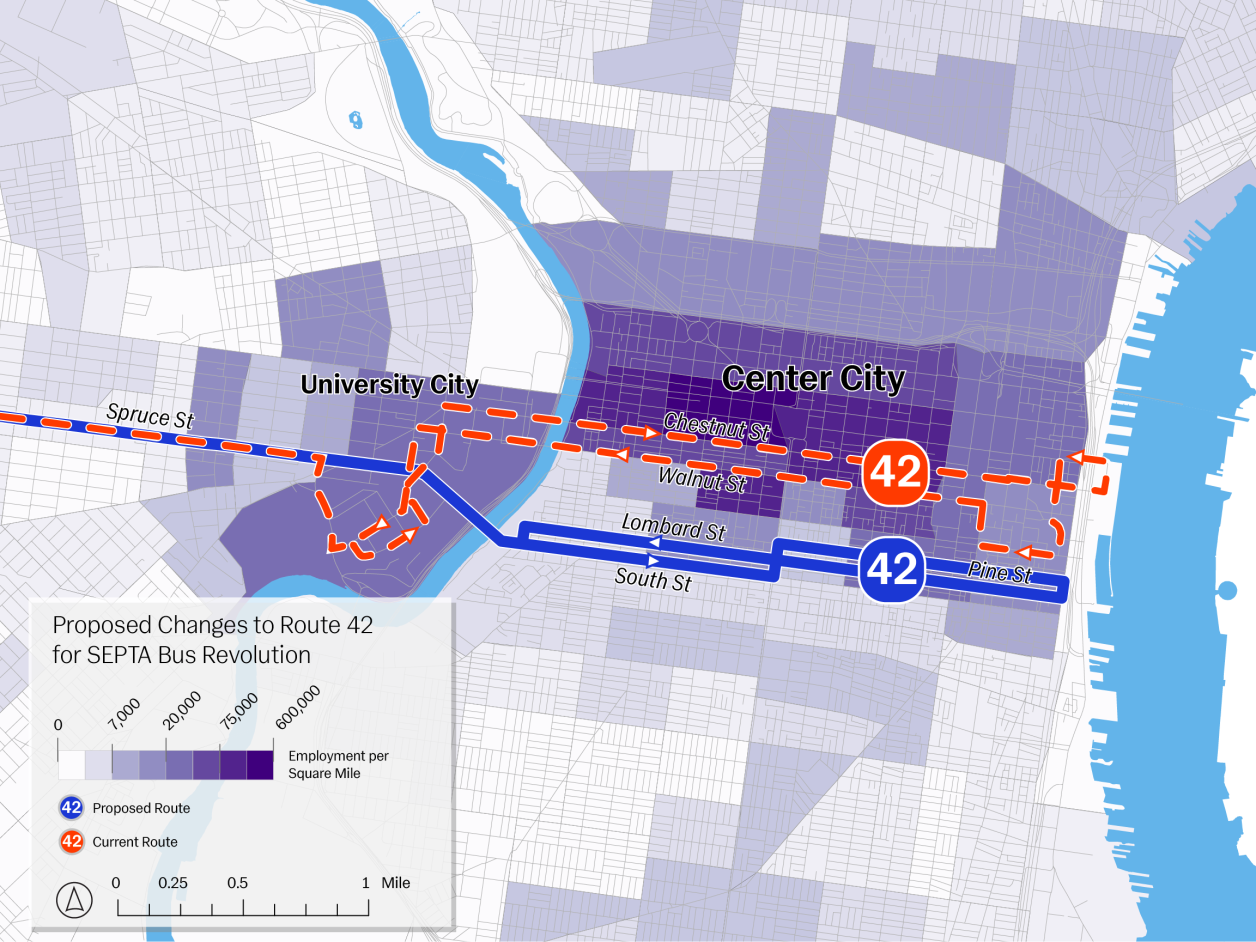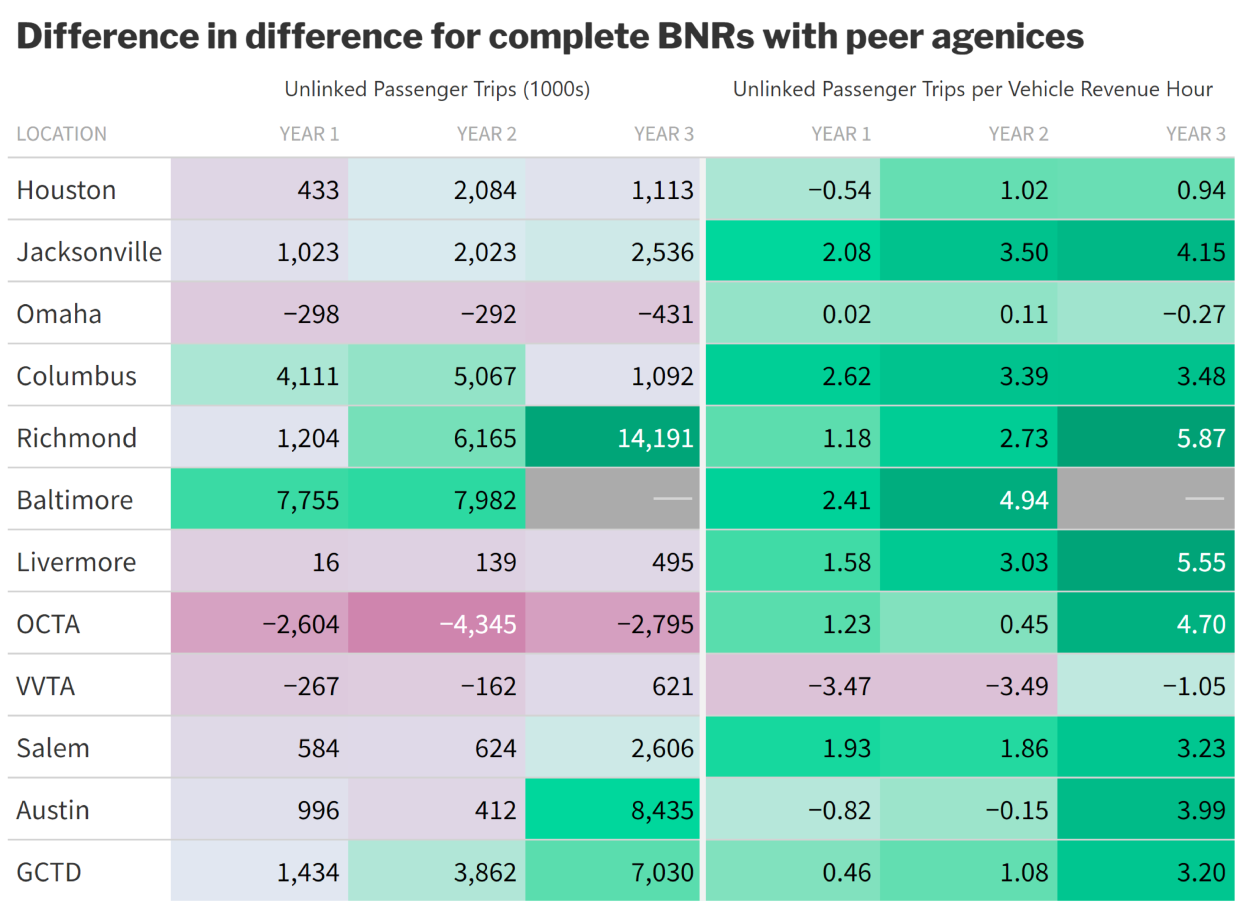Thesis: Jonathan Zisk
Bus Network Redesigns: A 21st Century Attempt to Save Mass Transit
Mass transit in the United States is in crisis, and it’s not because of Covid. Between 2012 and 2018, bus ridership across the nation declined by 18%, before plummeting in 2020. Any efforts to make our cities more sustainable need to entail switching trips back to mass transit. Bus network redesigns are one of the rare transit planning techniques that promise to reverse last decade’s systemic losses. In bus network redesigns, planners approach cities’ bus networks as blank slates and attempt to maximize their performance by reallocating service hours spatially and temporally. The technique has become wildly popular, with dozens completed since 2014 and several currently in planning stages, including those for Washington, DC, Philadelphia, and Boston.
I find that academic literature on bus network redesigns focuses on modeling their accessibility impacts, but that there has been no comprehensive study on their quantitative impacts. I establish a framework for measuring the effects of bus network redesigns and find no statistical differences between treated and untreated networks. However, I do observe weak positive associations with operational performance metrics over time in treated networks, compared to their peers. As more agencies complete bus network redesigns, this model can provide a more robust measure of their effects. As part of this project, I also I conducted a series of interviews with active transit planners. They observed how bus network redesigns are spread in a variety of ways -- proposed by one of a few prolific consulting firms, developed internally by transit agencies, or by municipal governments. They also spoke on how community engagement is a robust component in bus network redesign projects, especially as redesigns grow in scale. To conclude the project, I suggest that, regardless of their quantitative effects, bus network redesigns are intrinsically valuable for transit agencies because of how they facilitate wholistic, network-scale thinking about how transit can serve our cities.




